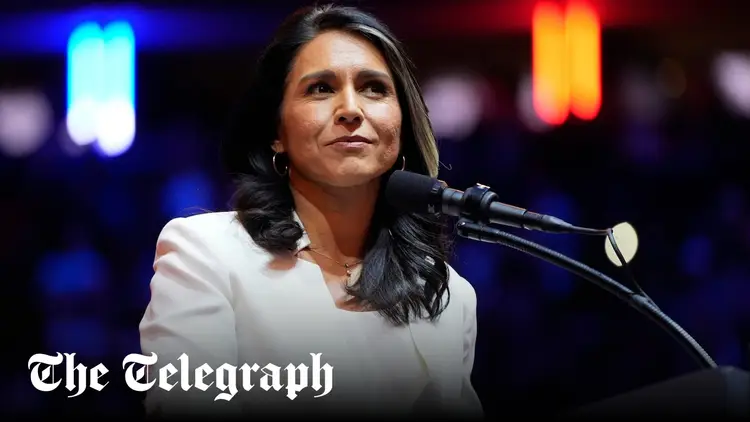Tulsi Gabbard: Trump’s new intelligence chief backed Kremlin conspiracy theories

When Russia initiated its "special military operation" in Ukraine, marking the beginning of two years of hardship for the area, political leaders in Washington largely united to denounce Vladimir Putin's acts of aggression.
A significant outlier in this situation was Tulsi Gabbard, a former Democratic congresswoman and military veteran who unsuccessfully campaigned for the presidency in 2020. She has now been appointed as Donald Trump's intelligence director.
She tweeted that the conflict and the resulting pain could have been easily prevented if the Biden administration and NATO had recognized Russia's genuine security worries about Ukraine joining NATO.
That remark was just the most recent in a string of bizarre views on foreign policy, which includes her doubts about the chemical weapon attacks in Syria after having two disputed meetings with Bashar al-Assad.
Since departing from the Democratic Party in October 2022, Ms. Gabbard has experienced a significant transformation, emerging as one of Mr. Trump's staunchest supporters.
Her appointment as the next director of national intelligence on Wednesday has the potential to create one of the most significant changes in the U.S. intelligence community in many years.
After becoming a member of the Republican Party earlier this year, Ms. Gabbard has criticized the government for its involvement in what she describes as a “military-industrial complex.” She has also spoken out against the established foreign policy framework in Washington.
Shortly after January 20, if the Senate approves her nomination, she will step into the role of leader in that organization.
The DNI supervises the United States' 18 intelligence agencies, ranging from major organizations like the FBI and NSA to lesser-known entities such as the National Reconnaissance Office.
The role was established in response to the events of 9/11, and it has never been occupied by a politician who shows such disdain for the intelligence operations they are responsible for.
In 2015, Ms. Gabbard drew attention from the CIA by attempting to pass a law that would prevent the agency from operating in Syria. However, her proposal was stopped by various congressional committees.
Four years later, she urged the American government to dismiss the charges against Julian Assange, the Australian journalist and founder of Wikileaks, known for releasing thousands of confidential intelligence documents online. She also advocated for the pardon of Edward Snowden, a former NSA employee who leaked a significant amount of sensitive information.
She has promoted a conspiracy theory supported by the Kremlin, which claims that Ukraine was creating biological weapons laboratories with the assistance of the United States.
These roles may not win her any favors within the US intelligence community, and she is expected to encounter considerable resistance in the Senate before Mr. Trump assumes office next year.















































